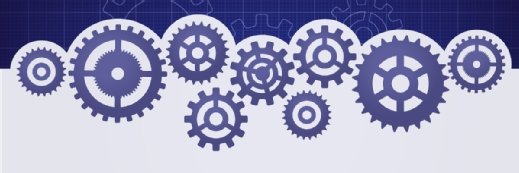
James Thew - Fotolia
AI and DevOps team up in remote work model
Communication and network security are increasingly difficult in DevOps teams as the workforce goes digital. Using AI and machine learning helps companies adjust to the remote work model.
Keeping a company productive after a quick shift to a remote work model can be frustrating, as communication gets frayed and momentum can be almost impossible to build. The company's DevOps team, especially reliant on communication, can be particularly affected with such a shift.
Countries and states have taken different approaches to COVID-19, but with stay-at-home orders extending into the foreseeable future, the remote work model has been adopted by numerous companies.
But with a virtual workforce comes unique challenges -- communication can be difficult, security operations can be strained and productivity can plummet. In order to best boost remote DevOps teams and avoid these issues, companies need to examine all available tools.
The rise of DevOps
Years before the use of the term DevOps, software developers and operations worked in isolated environments and rarely communicated with one another during the development process. This system led to problems, however, once the software was integrated into the production. DevOps is the result of these two teams coming together, according to Yoav Landman, co-founder and CTO of JFrog, a California-based software company. The driving force behind DevOps was the strong belief that communication and cooperation between the two teams would lead to the resolution of the problems. A further driver behind towards integrated DevOps teams is the nimbleness that a squad of developers can provide.
However, for companies that are not accustomed to the remote work model, communication can become strained with the rapid shift to remote work and telecommunications. DevOps teams can fall backwards to their siloed past without intervention. Cooperation must be maintained during this time despite the obvious difficulties.
The remote work model brings challenges
The fallout of the COVID-19 crisis has led to many companies encouraging their employees to work remotely. With this new large-scale remote work model, challenges and opportunities have arisen. DevOps teams, specifically, require a heightened level of communication and security to excel, and therefore can be hindered by these changes.
"Security challenges are heightened for developers and DevOps with a remote workforce model," said Justin Richie, director of data science at Nerdery, a digital business consultancy. "One of the biggest security challenges will be identifying and documenting solutions built and put in place throughout the rapid response to COVID-19."
With employees stretched out from the workplace, more security will be needed to ensure the same level of network safety as before the pandemic, not only when it comes to a company's assets, but when it comes to sorting through the rapid release of information on the pandemic and COVID-19 itself.
For enterprises that disseminate information relating to the safety of employees or the general public, building a proper plan can be difficult. This is where DevOps comes in, as the responsibility largely falls on developers and IT teams.
"These teams must not only provide employees with access to tools remotely, but also ensure software, tools and systems remain up-to-date and secure so that business continuity is not compromised," Landman said.
Ensuring that the communication that led to the creation of DevOps is maintained is one of the biggest challenges in the remote work model. When working remotely, experimenting with different tools that address communication and other challenges is key.
"As leaders, this is an important time to let teams figure out what tools and processes adequately support their culture, with the priority being on supporting the teams' effectiveness and productivity," said Justin Rodenbostel, the vice president of delivery at SPR, a Chicago-based digital transformation agency.
The role of AI and machine learning
DevOps teams are turning to AI and augmented tools to increase productivity and maintain continuous workflow.
"The new reality of everyone working from home may result in a greater need to be on support 24/7 and have systems up constantly -- any downtime means the team isn't able to be productive," Landman said.
Communication, handling of usual assignments and processes as well as security issues can each be addressed with the right tools. With AI and machine learning tools, DevOps teams can significantly increase the speed and range of their work.
"It allows them to analyze complex data systems to detect anomalies and identify opportunities for optimization in the DevOps process," Richie said.
Smart tools can help to automate processes and suggest changes in performance to drive higher quality code and decrease the amount of errors in less time. The emerging term AIOps reflects the desire to leverage AI in DevOps workflows.
"[AIOps] has a huge impact on security and reliability, which is important more now than ever given the uptick in remote work," Richie said.
Rodenbostel agreed that the challenges teams face really depend on what 'normal' working conditions for those teams are.
"Teams whose communication and collaboration benefit from being co-located, or who prefer to track work on a physical board instead of a digital tool like Trello, need to figure out what tools they can adopt that adequately support them," Rodenbostel said.
And AI and machine learning can be those tools companies are seeking. Through its ability to sort through information rapidly, optimize procedures and give insight, DevOps teams can use AI to better handle the challenges of today's unique circumstances.







